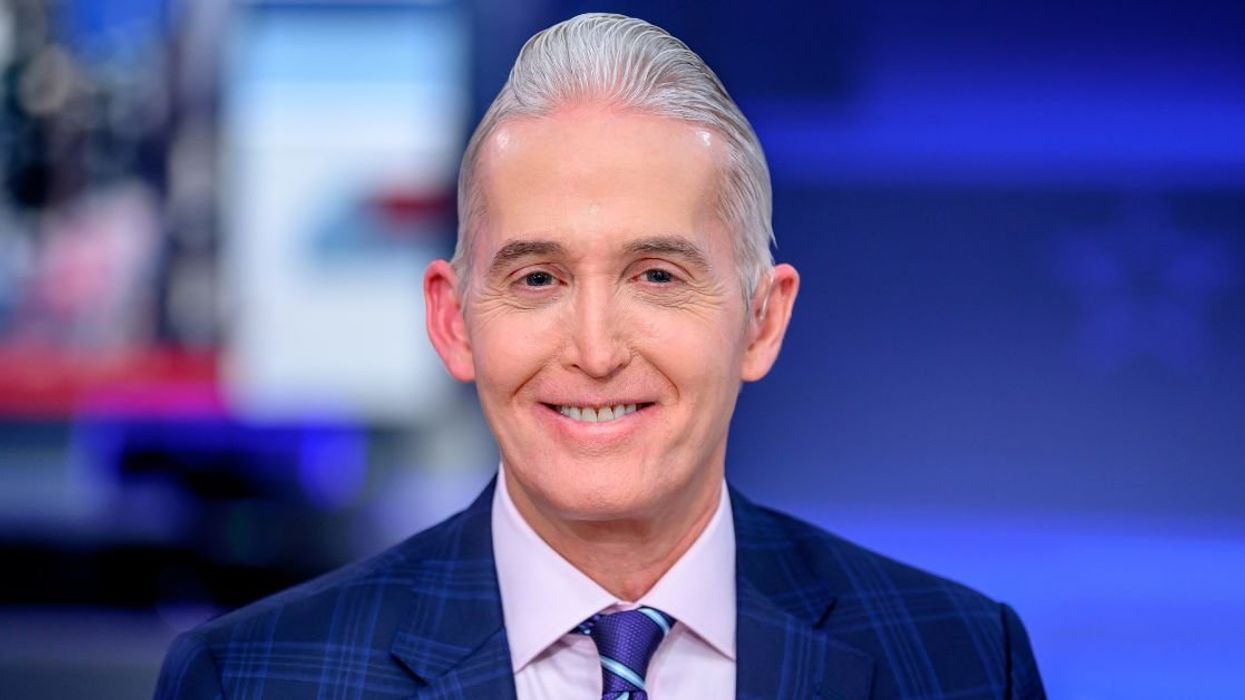The nation is reeling after yesterday’s mass shooting at Annunciation Church in Minneapolis, where a gunman opened fire during a Catholic school Mass, killing two children and injuring more than a dozen others. The tragedy has not only shaken the community but also reignited the national debate over guns in America—this time sparked by an unlikely voice.
Former Republican congressman and Fox News host of Sunday Night in America, Trey Gowdy—long seen as a staunch defender of gun rights and a past recipient of National Rifle Association contributions—surprised many of his own allies when he called for a national reckoning on firearms access.
Speaking on Fox’s Outnumbered panel, Gowdy said:
“We’re going to have to have a conversation of freedom versus protecting children. How many school shootings does it take before we’re going to have a conversation about keeping firearms out of—it’s always a young white male, almost always.”
His remarks reflect what research has long shown. A study by The Violence Project found that nearly 98 percent of mass shootings are carried out by men, and about half of all mass shooters are white males.
When narrowing the lens to school shootings, most attackers are young white males in their teens or early twenties—underscoring Gowdy’s point that the demographic is disproportionately represented in such tragedies.
Alluding to the country’s tragic cycle of mass shootings followed by inaction, he explained:
“Our system is reactive. Something bad happens, we react to it. And what people are crying for now is: How can we prevent this? How can we stop it?”
The urgency of his words reflects a grim reality: mass shootings are not only persisting but growing more frequent with each passing year.
According to the Gun Violence Archive, there have already been more than 400 mass shootings in 2025, keeping the U.S. on pace for another record-breaking year.
Studies by RAND Corporation and Everytown for Gun Safety show that states with stronger gun laws—such as background checks, waiting periods, and safe storage requirements—experience lower rates of mass shootings. Yet despite decades of mounting deaths, federal gun reform has repeatedly stalled in Congress.
You can view Gowdy’s remarks in the video below:
The backlash to Gowdy’s comments was immediate. MAGA-cult conservatives accused him of betrayal. Right-wing commentator Mike Cernovich posted a clip of the segment with the caption, “Trey Gowdy hates you and wants to take your guns.” The National Association for Gun Rights called him a “shill for gun control” and said his words were “unacceptable."
Gun control supporters, meanwhile, cautiously welcomed the remarks as a rare acknowledgment from a prominent conservative that America’s current system is unsustainable.
But Gowdy’s stance on the issue is somewhat complex. The South Carolina Republican represented the state’s 4th congressional district from 2011 to 2019, building a reputation as a tough-on-crime, pro-Second Amendment lawmaker. During his time in office, he chaired the influential House Oversight Committee and often opposed broad gun control measures.
However, in 2018, following the Las Vegas massacre, Gowdy supported banning bump stocks—devices that turn semi-automatic rifles into near-automatic weapons.
In a Face the Nation appearance that year, he emphasized the need to look at both access to weapons and the warning signs from shooters:
“You should look at the instrumentality and magazine capacity and the speed with which the projectiles [fire], including bump stocks. But you also have to look at the shooter… In school shootings, almost 80 percent of the time, there was notice provided. So you have to look at all of it.”
That nuance resurfaced this week, with Gowdy insisting that while mental health and behavioral red flags matter, lawmakers can no longer avoid the question of access to firearms.
There was backlash—and cautious praise—from the MAGA right, the conservative right, and the left.
For Minneapolis, the debate feels especially raw. The shooter, identified as 23-year-old Robin Westman, entered the church in black clothing just before 8:30 a.m. Police say Westman’s three firearms were legally purchased.
By the time the violence ended, two children—ages 8 and 10—were dead, at least two more children were critically injured, and three elderly parishioners were shot. Westman took their own life at the scene.
At a press conference later that morning, Minneapolis Mayor Jacob Frey gave voice to the grief of the community:
“Don’t just say, ‘This is about thoughts and prayers right now.’ These kids were literally praying. It was the first week of school. They were in a church. These are kids that should be learning with their friends. They should be playing on the playground. They should be able to go to school or church in peace without the fear or risk of violence.”
The mayor’s words highlight the deep pain felt not only in Minneapolis but across a nation still struggling with a decades-long deadlock over gun laws. As political fights continue, the families of Annunciation are left to mourn the children they lost and stand watch at the bedsides of those still fighting for their lives.
For now, the community is, tragically, preparing to bury children, gathering at vigils and in prayer, and holding one another through grief that should never have been theirs to bear.
Whether Trey Gowdy’s break from conservative pro-gun orthodoxy signals a change in America’s debate remains uncertain. What is certain is that yet another school community has been shattered by gunfire, and two young lives that should have been enjoying their first week back at school were instead cut short in a matter of minutes.














 @DuncanCecil/X
@DuncanCecil/X @@realDonaldTrump/Truth Social
@@realDonaldTrump/Truth Social @89toothdoc/X
@89toothdoc/X @xray_media/X
@xray_media/X @CHRISTI12512382/X
@CHRISTI12512382/X
 @sza/Instagram
@sza/Instagram @laylanelli/Instagram
@laylanelli/Instagram @itssharisma/Instagram
@itssharisma/Instagram @k8ydid99/Instagram
@k8ydid99/Instagram @8thhousepath/Instagram
@8thhousepath/Instagram @solflwers/Instagram
@solflwers/Instagram @msrosemarienyc/Instagram
@msrosemarienyc/Instagram @afropuff1/Instagram
@afropuff1/Instagram @jamelahjaye/Instagram
@jamelahjaye/Instagram @razmatazmazzz/Instagram
@razmatazmazzz/Instagram @sinead_catherine_/Instagram
@sinead_catherine_/Instagram @popscxii/Instagram
@popscxii/Instagram
